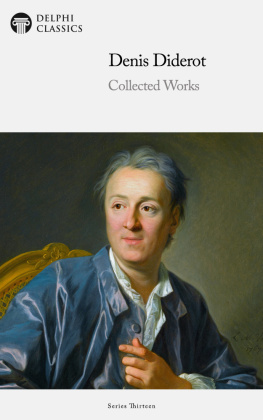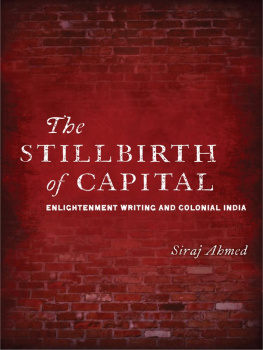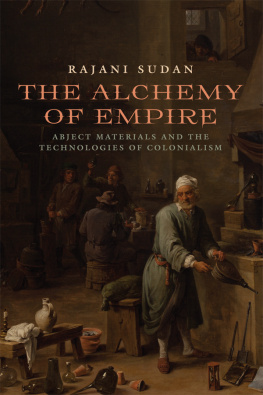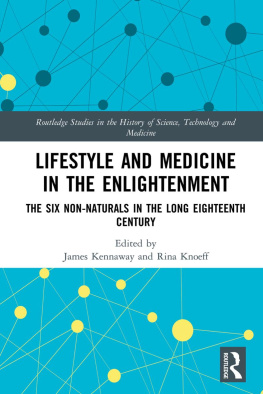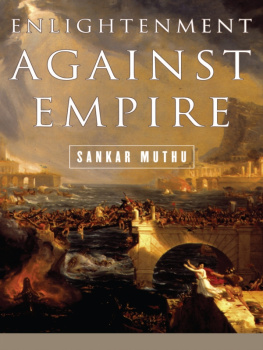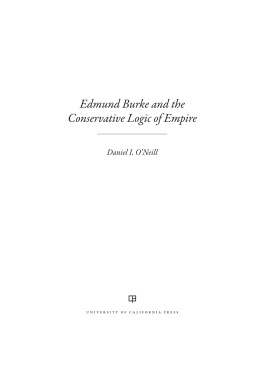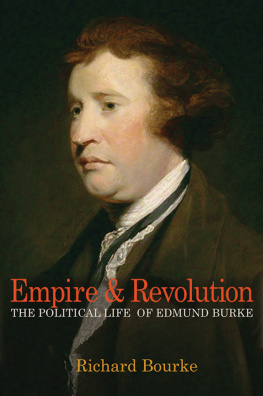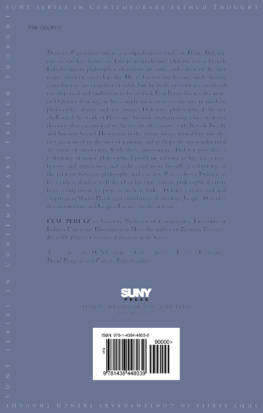Copyright 2013 Fordham University Press
All rights reserved. No part of this publication may be reproduced, stored in a retrieval system, or transmitted in any form or by any meanselectronic, mechanical, photocopy, recording, or any otherexcept for brief quotations in printed reviews, without the prior permission of the publisher.
Fordham University Press has no responsibility for the persistence or accuracy of URLs for external or third-party Internet websites referred to in this publication and does not guarantee that any content on such websites is, or will remain, accurate or appropriate.
Frontispiece: Jacob Lawrence (19172000), General Toussaint LOuverture, 1986. From the Toussaint LOuverture Series. Silk screen; image: 28 1/4 x 18 1/2 inches; paper: 32 x 22 inches. 2012 The Jacob and Gwendolyn Lawrence Foundation, Seattle / Artists Rights Society (ARS), New York. Image courtesy of DC Moore Gallery, New York.
Fordham University Press also publishes its books in a variety of electronic formats. Some content that appears in print may not be available in electronic books.
Library of Congress Cataloging-in-Publication Data is available from the publisher.
First edition
A book in the American Literatures Initiative (ALI), a collaborative publishing project of NYU Press, Fordham University Press, Rutgers University Press, Temple University Press, and the University of Virginia Press. The Initiative is supported by The Andrew W. Mellon Foundation. For more information, please visit www.americanliteratures.org.
The being of something is determinate; something has a quality and in it is not only determined but limited; its quality is its limit and, burdened with this, it remains in the first place an affirmative, stable being. But the development of this negation, so that the opposition between its determinate being and the negation as its immanent limit, is itself the being-within-self of the something, which is thus in its own self only a becoming, constitutes the finitude of something....
The finite not only alters, like something in general, but it ceases to be; and its ceasing to be is not merely a possibility, so that it could be without ceasing to be, but the being as such of finite things is to have the germ of decease as their being-within-self: the hour of their birth is the hour of their death.
Hegel, Science of Logic (1816)
The longer one takes to complete such a project, the lengthier the list of debts becomes. In its early forms, Gauri Viswanathan, Gayatri Chakravorty Spivak, Nicholas Dirks, Talal Asad, Emma Rothschild, Jenny Davidson, and Seamus Deane all provided helpful comments and criticism. I benefited more broadly from a range of scholars who were at or passed through Columbia University. The memory of Edward Saids seminar remarks and casual asides is unavoidably with me when I recall this group of people. The widely divergent manner in which they conducted their intellectual lives was itself instructive. As much a part of this world were friends and colleagues Sanjay Krishnan, Milind Wakankar, Tim Watson, Qadri Ismail, Aamir Mufti, Colleen Lye, Sanjay Reddy, Teena Purohit, Chenxi Tang, Nauman Naqvi, Nermeen Shaikh, Jonathan Magidoff, Ninon Vinsonneau, and Clarisse Berthezne.
A range of individuals and research institutions assisted my work through fellowships: a Fulbright for study at the Institut fr Kulturwissenschaft at Humboldt University in Berlin allowed me to read widely (my thanks to Hartmut Bhme there and to Andreas Huyssen for his assistance); a William Reese Company fellowship from the John Carter Brown Library, directed by Norman Fiering, gave me tactile access to Histoire des deux Indes; the Princeton Society of Fellows (then ably directed by Leonard Barkan, whom I must thank) enabled me to expand the scope of this project; an Ahmanson-Getty Fellowship from the Clark Memorial Library at the University of CaliforniaLos Angeles put me in touch with intellectual historians of empire (I thank Peter Hanns Reill, Anthony Pagden, and Sanjay Subrahmanyam for this opportunity); and, finally, the Newberry Library in Chicago, where I attended a National Endowment for the Humanities summer seminar on the French and Haitian Revolutions, led by Jeremy Popkin (I must also acknowledge my discussions with Emmanuel Chukwudi Eze here, now sadly passed away). The Newberry also graciously provided me with research space as a scholar in residence for several years.
During the two years I spent at Princeton, Gyan Prakash, Michael Wood, Claudia Johnson, Hans Aarsleff, and Mary Harper were all generous with their time and support. I would like to thank my colleagues in Ann Arbor while I was in the English Department at the University of Michigan, especially Patricia Yaeger, Jonathan Freedman, Sidonie Smith, Lincoln Faller, David Porter, Dena Goodman, Sumathi Ramaswamy, Scotti Parrish, Adela Pinch, Lucy Hartley, Yopie Prins, Barbara Metcalf, James I. Porter, and Sean Jacobs.
Since joining the University of Illinois at Chicago in 2008, it has been my pleasure to interact with faculty in both the Department of English as well as History. Their encouragement and the intellectual diversity (if my colleague noted below will permit me the word!) of their opinions and interests has taught me the worth of provocative critique. I must particularly thank Mark Canuel, always ready with advice and gentle nudges to move forward with this book. Beside him were many others who were supportive (or productively challenging) interlocutors: Lennard Davis, Lisa Freeman, Robin Grey, Laura Hostetler, Jim Sack (an especially careful reader!), Astrida Orle Tantillo, the late James Searing (his sudden passing is still a shock), Walter Benn Michaels, Joseph Tabbi, Ellen McClure, Nicholas Brown, Deirdre McClosky, Alfred Thomas, Dwight McBride, John Huntington, Gerald Graff, Stephen Engelmann, Rachel Havrelock, Ainsworth Clarke, Anna Kornbluh, and Corey Capers.
Along the way, others allowed me to present parts of this work or provided comments and suggestions: Margaret Cohen, Srinivas Aravamudan, Uday Mehta, Ato Quayson, Sankar Muthu, David Armitage, James E. G. Zetzel, Jennifer Pitts, Ajay Skaria, Ranajit Guha, Isabelle Clark-Decs, Jim Clark, Sudipta Kaviraj, David Bromwich, Akeel Bilgrami, Betty Joseph, Pauline Lavagne, Isabelle Gadoin, Marie-lise Palmier-Chatelain, Pratap Bhanu Mehta, Susanne Greilich, Carla Hesse, Bhikhu Parekh, Ann Thomson, Thomas Metcalf, Kapil Raj, Matthew Smith, John Mowitt, Siraj Ahmed, and the late Yves Benot. Suvir Kaul provided detailed suggestions. I am very aware that some of those named may not agree with the arguments of this book; misreadings and mistakes that follow are most certainly my own, but I hope in the spirit of discussion (I will not say the public use of reason) that they will momentarily indulge the work.
In addition to the Modern Language Association and the American Society for Eighteenth-Century Studies, portions of this book were presented at the following research forums or conferences: the Bloomington Eighteenth-Century Workshop, organized by Fritz Breithaupt, at Indiana University (thanks to Jonathan Sheehan and Kenneth R. Johnston for comments); the Irish Studies Seminar, University Seminars at Columbia University (arranged by Mary McGlynn and Martin Burke); the American Conference for Irish Studies, Princeton University (my thanks to Abbey Bender); the International Society for Eighteenth-Century Studies, hosted by the University of Genoa; Religion and the English Enlightenment, organized by Sophie Gee of the English Department and the Center for the Study of Religion, Princeton University; the International Society for Intellectual History, organized by Marco Sgarbi and hosted by the University of Verona; Atlantic Enlightenments, Center for the Humanities, University of Miami (Frank Palmeri provided helpful comments); Caribbeanscapes, the Annual West Indian Literature Conference, held at University of the West IndiesMona, Jamaica; the American Comparative Literature Association (Vancouver); LInde des Lumieres, organized by Ines Zupanov and Marie Fourcade, LEcole des Hautes Etudes en Science Sociale, Paris; the Fourteenth International Conference of the Forum on Contemporary Theory, organized by Lewis Gordon (Temple University) with Prafulla Kar (Institute for Contemporary Theory, Vadodara) and held in Jaipur, India.


